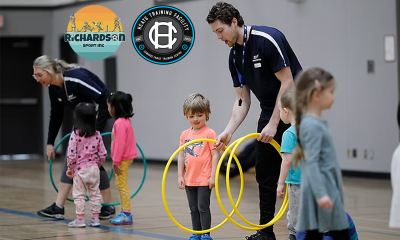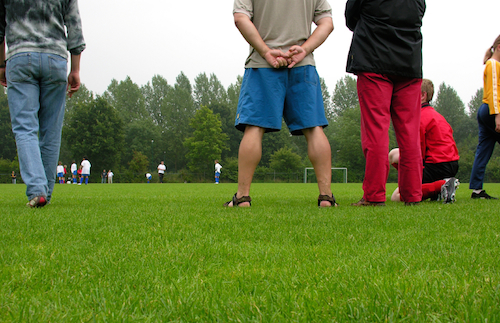Parents say ‘needle and feces sweeps’ have become part of everyday life for the baseball community
– By Mike Davies
Campbell River Mirror
Nunns Creek Park is no longer safe for children.
That was the message presented to city council by Campbell River Minor Baseball at the city’s May 11 Committee of the Whole meeting, where Stewart Dumont and Larry Samson with the Campbell River Minor Baseball Association asked the city to allow the association to move its activities to the Sportsplex.
With them they brought letters of support from numerous parents, volunteers and community members echoing the association’s concerns, many of which described specific issues of concern.
“Nunns Creek Park is not suitable for children to play at in my opinion,” wrote Terry Basso. “One of the moms was taking her younger children to the play area the other morning and I had to tell her to look for needles first. Is this where we want our children playing?”
Chantelle May, who has been actively involved in minor baseball since 2011, says while the behaviour and concerns aren’t new, they have certainly escalated over the years.
“From the very beginning, in 2011, we had to do what we dubbed ‘needle and feces sweeps’ of the fields, bathrooms and playground to assure that our children would not come into contact with anything/anyone dangerous to them,” writes May. “This just became a normal part of our duties before each game/practice.”
But recently, May says, they have gone from sweeping the fields for feces and needles to also encountering intoxicated people who threaten people’s safety.
“I had encountered a man occupying a bathroom, with his shopping cart, he had barricaded the door only to open it to spit at me because I had asked him to please pack up as we were hosting a tournament that weekend,” May writes. “He then went on a verbal tirade directed at anyone within earshot (about 50 parents and kids) with the most vulgar language I’ve ever heard.”
Stacey Rosse, manager of the league’s U11 Yankees, says she, too, has had enough.
“I love how excited my kids are to head to the ball field a couple times per week, however, as a parent/coach/manager there is also a a feeling of dread and anxiety,” Rosse says. “What will be waiting for us today when we get there? How many needles am I going to find on or near the field? How much garbage will be piled up in the dugout?
“I am a compassionate person,” Rosse continues, “but I am tired of worrying about the state of the fields and the people hanging around them. It’s not fair to our kids or to us as volunteers. The fact that many drug users frequent this area of town is not going to change anytime soon. It’s been this way as long as I can remember. We have a space in the Sportsplex that is hugely under-utilized that could be the perfect place to relocate our baseball program to. With a few upgrades we could finally have a safe and nice place to play baseball! A place that we would be proud to host teams from other communities instead of feeling embarrassed.”
Mayor Andy Adams says upon hearing these reports, council decided to immediately move CRMB to the Sportsplex. There was a recommendation to ask city staff to come back to council with a report on the matter, but council decided that three weeks was too long to wait.
“The presentation was disturbing,” Adams says. “But we wouldn’t be meeting again for three weeks and I felt that was too long to wait. We can’t have kids put in that type of situation, so the decision was to direct staff to have minor baseball move immediately to the Sportsplex.”
Adams admits, however, that there may be complications associated with that decision down the road.
“Nothing else is going on right now in the fields (at the Sportsplex), but the challenge will be if things do open up in terms of provincial health orders and other sports, whether it be rugby or slowpitch or other things get going, they all can’t fit at the Sportsplex.”
So the next move for the city is to establish an inventory of its fields and what shape they are in – perhaps partnering up with the school district on a plan – so they can get everyone able to play, as well as, Adams says, “figuring out what we’re going to do with Nunns Creek Park.”
That discussion, the mayor says, will happen at the May 31 meeting of city council.







 Summer Collegiate2 weeks ago
Summer Collegiate2 weeks ago




 Summer Collegiate6 days ago
Summer Collegiate6 days ago




 Summer Collegiate6 days ago
Summer Collegiate6 days ago






















You must be logged in to post a comment Login